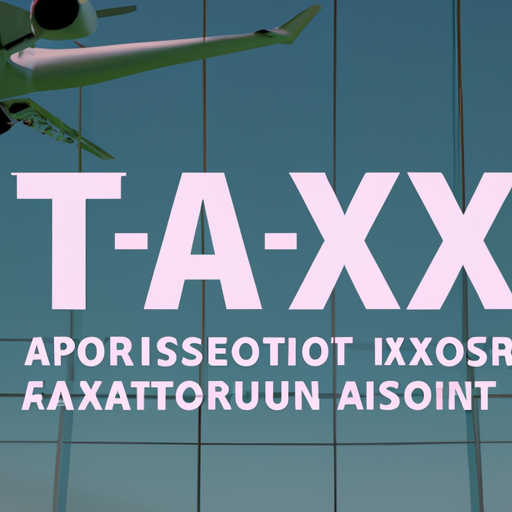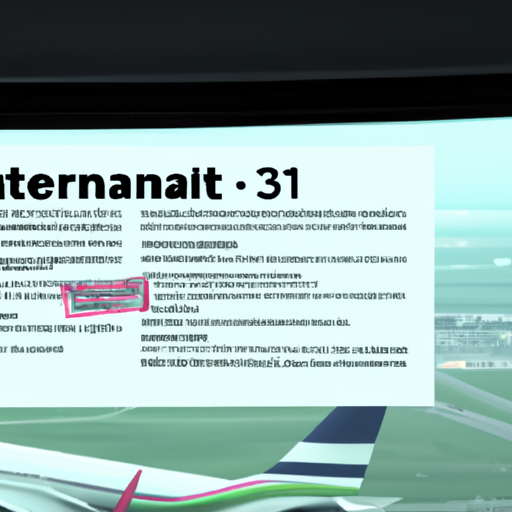
Potential Impact of Netherlands’ Flight Tax on Transit Passengers
The Netherlands has recently proposed a flight tax for transit passengers, which has sparked a lot of discussion and debate. This potential tax could have a significant impact on those who use the country as a transit hub for their international flights. In this article, we will explore the potential effects of this flight tax on transit passengers.
Firstly, it is important to understand what this flight tax entails. The Netherlands is considering implementing a tax on passengers who are transiting through their airports. This means that even if you are not staying in the country, but simply changing planes there, you would still be subject to this tax. The exact amount of the tax has not been determined yet, but it is expected to be a significant sum.
One of the main concerns for transit passengers is the potential increase in travel costs. If this flight tax is implemented, it could mean that travelers will have to pay an additional fee on top of their already expensive international flights. This could make traveling through the Netherlands less attractive for those who are on a tight budget or looking to save money on their journey.
Another potential impact of this flight tax is the effect it could have on the tourism industry in the Netherlands. Many travelers choose to transit through the country because of its convenient location and well-connected airports. However, if this tax is implemented, it could deter transit passengers from choosing the Netherlands as their transit hub. This could result in a decrease in tourism revenue for the country, as well as a decline in the number of visitors passing through their airports.
Furthermore, the implementation of this flight tax could also have implications for airlines. If transit passengers choose to avoid the Netherlands as a transit hub, airlines that operate in the country could see a decrease in demand for their services. This could lead to a reduction in flights and potentially job losses within the aviation industry. It is important for the government to consider the potential consequences for the airline industry before implementing this tax.
On the other hand, proponents of the flight tax argue that it could have positive effects on the environment. By discouraging transit passengers from using the Netherlands as a hub, it could reduce the number of flights and subsequently decrease carbon emissions. This aligns with the country’s commitment to sustainability and could be seen as a step towards a greener future.
In conclusion, the proposed flight tax for transit passengers in the Netherlands could have a significant impact on travelers, the tourism industry, and airlines. While it may increase travel costs and deter transit passengers, it could also have positive effects on the environment. It is important for the government to carefully consider the potential consequences before implementing this tax and to find a balance between economic and environmental concerns.
Economic Implications of Netherlands’ Proposed Flight Tax

The Netherlands has recently proposed a flight tax for transit passengers, which has sparked a debate about its economic implications. This proposed tax would apply to passengers who are transiting through Dutch airports without leaving the airport premises. While the intention behind this tax is to generate revenue and reduce carbon emissions, it is important to consider the potential impact it may have on the economy.
One of the main economic implications of this proposed flight tax is the potential decrease in transit passengers. If the tax is implemented, it is likely that some passengers may choose alternative routes or airports to avoid paying the additional fee. This could result in a decrease in the number of transit passengers passing through Dutch airports, which could have a negative impact on the economy. Transit passengers contribute to the local economy by spending money on food, beverages, and other services at the airport. Therefore, a decrease in transit passengers could lead to a decline in revenue for airport businesses.
Additionally, the proposed flight tax could also have an impact on the tourism industry in the Netherlands. The country is known for its vibrant tourism sector, with millions of visitors arriving each year. However, if transit passengers choose to avoid Dutch airports due to the flight tax, it could result in a decrease in overall tourist arrivals. This could have a ripple effect on various sectors of the economy, including hospitality, transportation, and retail. The tourism industry plays a significant role in the Dutch economy, and any decline in tourist arrivals could have a detrimental effect on businesses and employment opportunities.
Furthermore, the flight tax could also affect the competitiveness of Dutch airports. If transit passengers opt for alternative routes or airports, it could lead to a loss of business for Dutch airports. This loss of business could make it more challenging for Dutch airports to attract airlines and maintain their position as major transit hubs. This, in turn, could have a negative impact on the overall connectivity of the country, making it less attractive for international businesses and travelers.
On the other hand, proponents of the flight tax argue that it could have positive economic implications. The revenue generated from the tax could be used to invest in sustainable infrastructure and initiatives, which could attract environmentally conscious travelers. This could position the Netherlands as a leader in sustainable aviation and potentially attract a new segment of tourists who prioritize eco-friendly travel options. Additionally, the tax could also incentivize airlines to invest in cleaner technologies and reduce their carbon footprint, which could have long-term environmental and economic benefits.
In conclusion, the proposed flight tax for transit passengers in the Netherlands has both positive and negative economic implications. While it could generate revenue and promote sustainability, it could also lead to a decrease in transit passengers, impact the tourism industry, and affect the competitiveness of Dutch airports. It is crucial for policymakers to carefully consider these implications and strike a balance between generating revenue and maintaining a thriving economy.
Environmental Benefits of Netherlands’ Flight Tax for Transit Passengers
The Netherlands has recently proposed a flight tax for transit passengers, and while this may seem like an inconvenience for travelers, it actually has several environmental benefits. By implementing this tax, the Netherlands is taking a step towards reducing carbon emissions and promoting sustainable travel.
One of the main environmental benefits of this flight tax is the reduction in greenhouse gas emissions. Air travel is a major contributor to carbon dioxide emissions, which are a leading cause of climate change. By discouraging unnecessary flights and encouraging more sustainable modes of transportation, such as trains or buses, the Netherlands is helping to reduce the carbon footprint of transit passengers.
In addition to reducing greenhouse gas emissions, the flight tax also has the potential to decrease air pollution. Airplanes emit various pollutants, such as nitrogen oxides and particulate matter, which can have detrimental effects on air quality and human health. By discouraging unnecessary flights, the Netherlands is helping to improve air quality and create a healthier environment for its citizens.
Furthermore, the flight tax can also lead to a decrease in noise pollution. Airports are often located near residential areas, and the constant noise from airplanes can be a major nuisance for those living nearby. By reducing the number of flights, the Netherlands is helping to alleviate this issue and create a more peaceful environment for its residents.
Another environmental benefit of the flight tax is the promotion of sustainable travel alternatives. By making air travel more expensive, the Netherlands is encouraging transit passengers to consider other modes of transportation, such as trains or buses. Not only are these modes of transportation generally more environmentally friendly, but they also have the potential to reduce congestion on roads and at airports.
Additionally, the flight tax can also lead to a boost in the local economy. By encouraging transit passengers to spend more time in the Netherlands, the country can benefit from increased tourism revenue. This can help support local businesses and create job opportunities, ultimately contributing to the overall economic growth of the country.
While the flight tax may initially be seen as an inconvenience for transit passengers, it is important to recognize the long-term environmental benefits it brings. By reducing greenhouse gas emissions, air pollution, and noise pollution, the Netherlands is taking a proactive approach towards creating a more sustainable and livable environment.
In conclusion, the Netherlands’ proposal of a flight tax for transit passengers has several environmental benefits. By reducing carbon emissions, air pollution, and noise pollution, the country is taking a step towards a more sustainable future. Additionally, the flight tax can also lead to economic benefits by promoting local tourism. While it may require some adjustments for travelers, the long-term positive impact on the environment and the economy makes it a worthwhile initiative.


